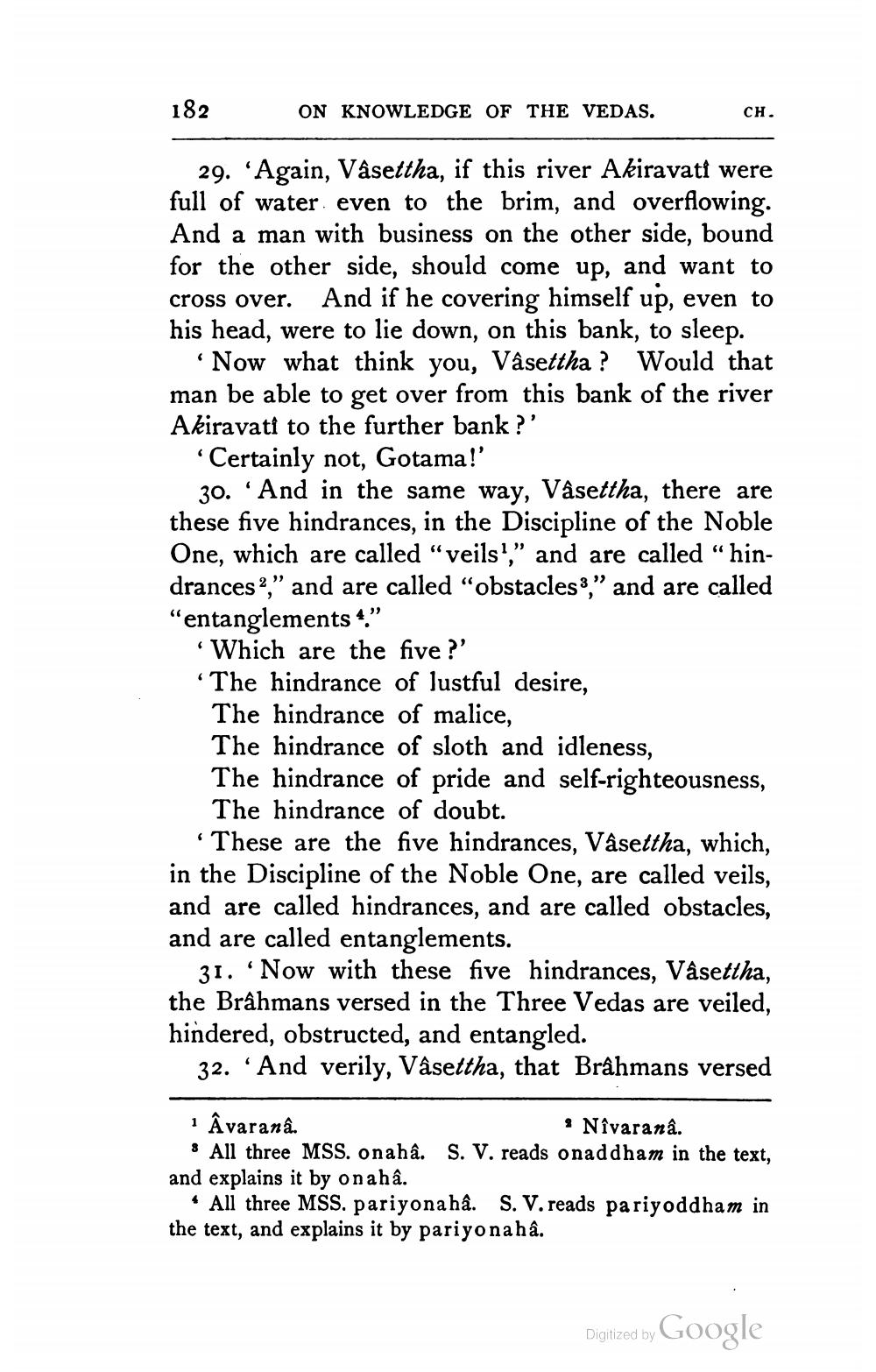________________
182
ON KNOWLEDGE OF THE VEDAS.
ch.
29. 'Again, Vasettha, if this river Akiravati were full of water even to the brim, and overflowing. And a man with business on the other side, bound for the other side, should come up, and want to cross over. And if he covering himself up, even to his head, were to lie down, on this bank, to sleep.
Now what think you, Vasettha ? Would that man be able to get over from this bank of the river Akiravati to the further bank ?'
Certainly not, Gotama!'
30. ‘And in the same way, Vâsettha, there are these five hindrances, in the Discipline of the Noble One, which are called "veils?," and are called “hindrances?,” and are called “obstacles 3,” and are called "entanglements 4.”
Which are the five ?' 'The hindrance of lustful desire,
The hindrance of malice, The hindrance of sloth and idleness, The hindrance of pride and self-righteousness,
The hindrance of doubt. 'These are the five hindrances, Vasettha, which, in the Discipline of the Noble One, are called veils, and are called hindrances, and are called obstacles, and are called entanglements.
31. *Now with these five hindrances, Vâsettha, the Brâhmans versed in the Three Vedas are veiled, hindered, obstructed, and entangled.
32. ‘And verily, Vâsettha, that Brâhmans versed
1 Âvaranâ.
Nivarana. 3 All three MSS. onaha. S. V. reads onaddham in the text, and explains it by onahâ.
• All three MSS. pariyona hâ. S. V.reads pariyoddham in the text, and explains it by pariyonahâ.
Digitized by Google




